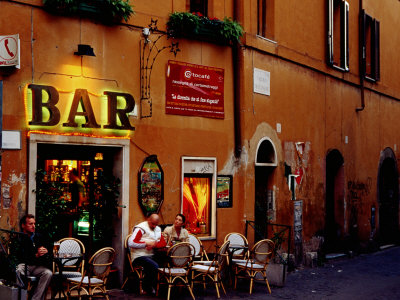The addiction/recovery newsmagazine site, The Fix, has a feature where experts answer questions from readers. Their latest offering is an answer to this question:
How can I meet people now that I’m sober? I can’t go to bars and clubs anymore.
In one respect, the actual answer from Dr Belisa is a pretty good one. She basically says to learn to chat and you’ll meet people anywhere – on the bus, at the dog park, while doing volunteer work, etc. This makes sense, it’s helpful, and asks people to broaden their horizons. But in another respect, the answer deeply concerns me, not for what’s said but for what goes unsaid.
Within the question lies a straightforward premise – that a sober person can’t go to bars and clubs. The implication is that if they were to go to a bar or club they wouldn’t be able to keep themselves from drinking and “relapsing.” This premise is readily accepted without question by the doctor, because it’s a standard belief within the recovery culture. But should it be accepted as a truth?
Don’t get me wrong, I have nothing against anyone choosing to stay away from bars and clubs. This can be a perfectly rational life choice. But it should be just that – a rational choice. That is, when you weigh the options available to you of how your time can be spent, you realize that a bar or club just doesn’t offer you a better experience than you could get elsewhere. That’s ok, I see how people may make that judgment and it will be correct for them in their life. It’s clear that in this case though, staying away from bars is an irrational choice based on an irrational premise. The questioner actually believes that their life is on the line and that merely stepping foot into a bar will destroy them.
This questioner isn’t alone in this belief. Such nonsense is actually taught to people within the recovery culture. Is it alright for a doctor to ignore the fact that this person is living their life under such irrational fears? Is it alright for the doctor to reinforce such a fear by implicitly accepting it and advising someone on how to re-arrange their life around the fear? This is the equivalent of a psychiatrist helping someone with OCD by giving them new strategies for keeping their hands clean. Fearing places where people drink is indicative of a serious deeper problem – that such a person has no self confidence or self-efficacy, that they’re oriented towards an external locus of control, and thus that they feel and ultimately will act as if they have no self-control. This person is on edge, the recovery culture brought her there, and then they help her to cope with being on the edge rather than pulling her back from it.
More suspicious people would see this as evidence of a nefarious plot to keep people in need of treatment. I don’t see it that way, I believe the people who teach this stuff are well-intentioned, and that they really believe it. Nevertheless it’s irresponsible and harmful to mislead people into believing that a bar will cause them to lose control.
So, here’s what my official response would be to the same question:
Q: How can I meet people now that I’m sober? I can’t go to bars and clubs anymore.
A: Good question. There are plenty of places to meet people other than bars. If you can work on being outgoing and friendly you’ll meet people everywhere – at your church, at the dog park, while attending various events, etc. Be ready to smile and chat whenever you’re around others and you’ll surprise yourself. The key is to be out there doing things which involve other people. The good part about this is that you’ll find people who you definitely share interests with other than drinking.
With that said, it concerns me that you believe you can’t go to bars. You can, and you don’t need to drink; there are plenty of non-alcoholic beverages available at most bars. While it’s true that such places may trigger some sort of memories of drinking, they still can’t cause you to drink and/or lose control. If such a thought crosses your mind, you have the choice of whether to focus, expand, and obsess on it, thus leading you closer to the choice to drink – or you can consciously choose to redirect your thoughts and focus on something else, which will keep you away from making the choice to drink (in this situation you would focus on conversing with the people you’re meeting). So although you may choose to avoid bars and clubs for any number of reasons, you should not fear them or view yourself as incapable of being in one without losing control. You have control over your own behavior.
